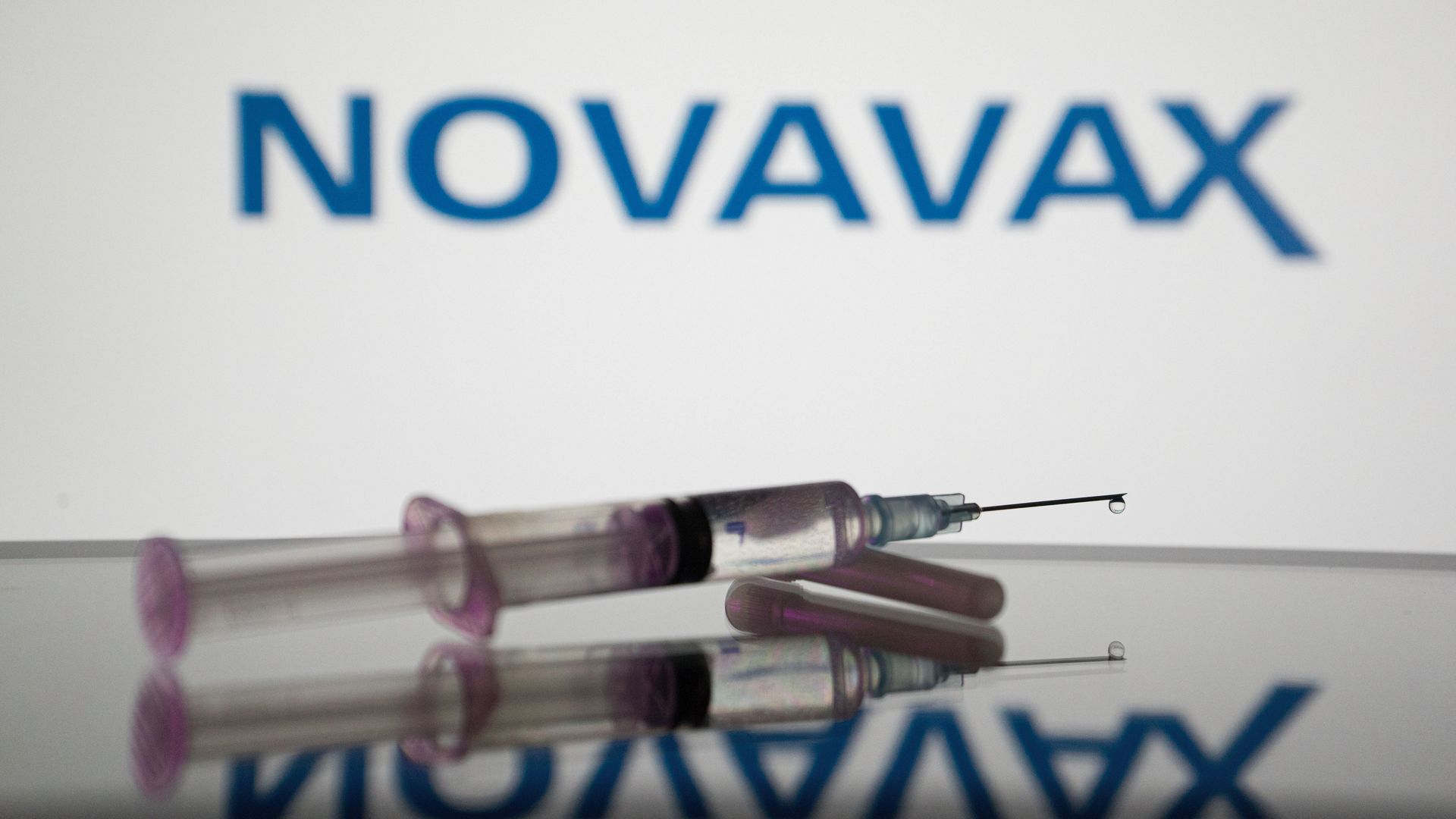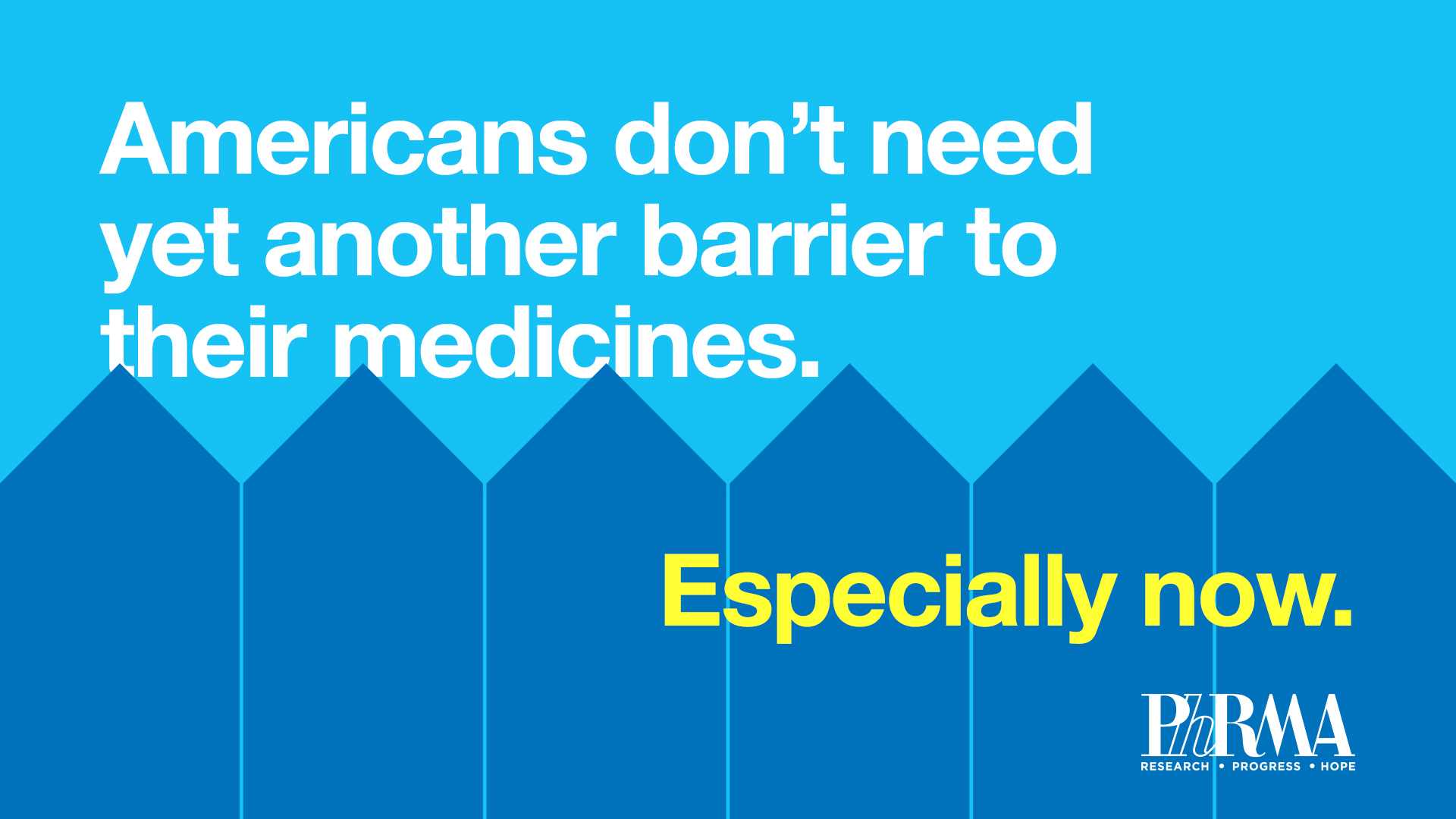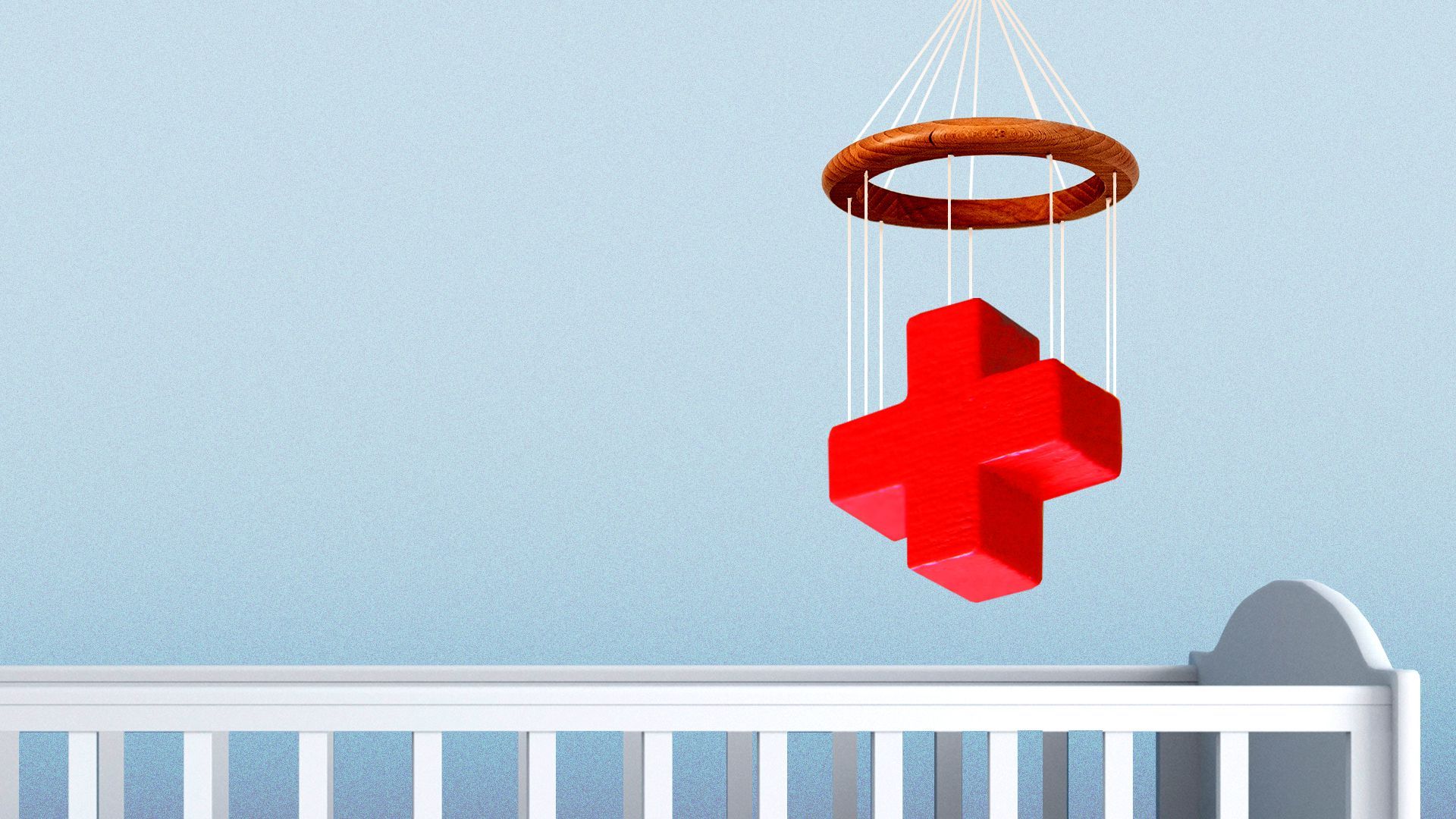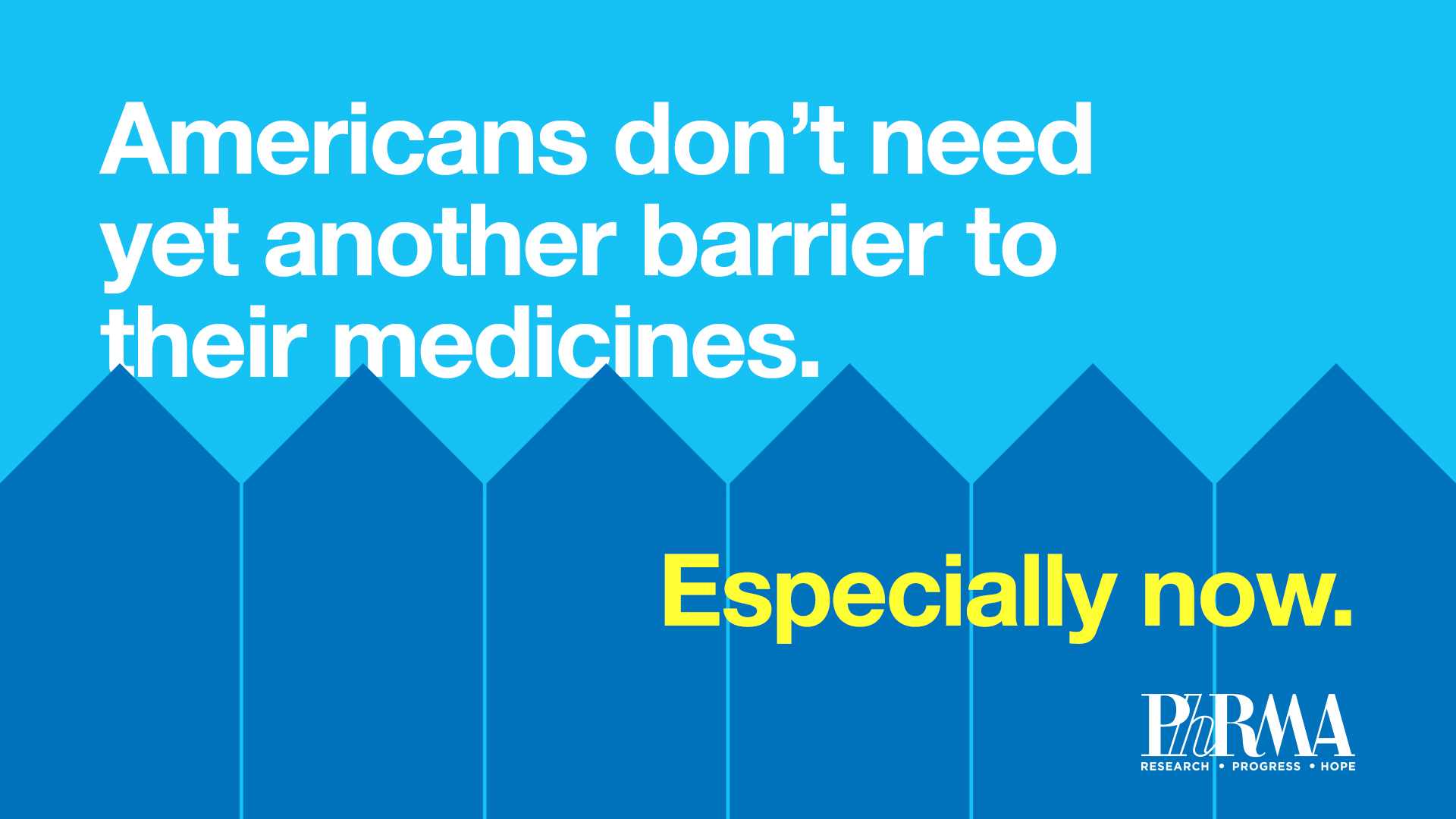| |
| |
| |
| Presented By PhRMA |
| |
| Axios Vitals |
| By Tina Reed · Jun 10, 2022 |
| Happy Friday, Vitals readers! Today's newsletter is 970 words, or a 4-minute read. |
| |
| |
| 1 big thing: Protecting health workers factors in gun debate |
 |
|
| Illustration: Sarah Grillo/Axios |
| |
| The recent spate of mass shootings, including an incident that claimed four lives at a Tulsa hospital, is driving efforts to enact new safeguards for health workers and enhanced penalties for individuals who use dangerous weapons on medical campuses, Axios' Arielle Dreher writes. Why it matters: Hospital trauma departments are on the front lines whenever there's a mass shooting, but when those spaces are targeted, staff must mobilize to not only protect their patients but themselves. - And yet, efforts to fortify health facilities could also conflict with their traditional roles as community resources and safe spaces.
Go deeper: From 2010 to 2020, shootings resulted in 39 deaths at health care facilities accredited by the Joint Commission. From 2000 to 2011, researchers found there were 154 hospital-related shootings in the U.S. - A survey from the American College of Emergency Physicians in 2018 concluded that nearly half of emergency room doctors have been assaulted at work.
- COVID-19 and the fractious debate over masks and vaccines has only exacerbated tensions.
- "The pandemic made the workplace more tense, particularly for emergency departments," Jennifer Schmitz, president of the Emergency Nurses Association, told Axios.
Driving the news: Bipartisan legislation introduced in the House this week would give health workers the same kind of protections as flight crews and airport workers and impose new federal penalties for individuals who use a dangerous weapon to assault or intimidate hospital employees. - The measure would make exceptions for individuals who may be mentally incapacitated due to illness or substance use.
The big picture: Violence against health care workers existed long before the pandemic. Between the lines: But there are still questions about how much security is too much — and over the merits of new mandates. The bottom line: While hardening defenses against active shooters or increasing penalties for violent behavior may help, they don't address the underlying cycle of gun violence. |
    |
| |
| |
| 2. Renewed pressure for COVID shot IP sharing |
| World Trade Organization member nations are facing renewed pressure to settle the debate over whether to suspend some intellectual property rights for coronavirus vaccines and treatments, Axios' Adriel Bettelheim writes. Why it matters: The so-called TRIPS waiver has divided wealthy and developing nations for nearly two years, with proponents saying it will help increase vaccine production and deliver doses in the developing world. Where it stands: The idea is supported by most WTO members, but it takes all 164 of the member countries to consent to the decision. - The Biden administration supports applying the waiver to vaccines, but the U.K. and Switzerland, among others, say it would jeopardize drug research.
- A WTO ministerial conference beginning Sunday in Geneva may be the last chance to broker a deal.
- WTO Director-general Ngozi Okonjo-Iweala has pressed members to strike an agreement by the end of the conference Wednesday.
The intrigue: Leaked working documents suggest members aren't close, Devex reports. - Discussions have centered on the possibility of remuneration, the length of any waiver and whether to officially exclude China — a position the U.S. backs, according to the report.
What they're saying: Drugmakers say the IP waiver is misguided and that the WTO should instead focus on reducing trade barriers and improving the distribution of the vaccines. |
    |
| |
| |
| 3. Delay possible for Novavax shot |
 |
|
| Photo Illustration: Nikos Pekiaridis/SOPA Images/LightRocket via Getty Images |
| |
| Novavax's share price tumbled yesterday on news the vaccine maker's COVID shot might be delayed further by additional FDA reviews of its manufacturing process. Why it matters: Novavax's shot is in line to become the fourth to be authorized in the U.S. after an FDA advisory committee concluded the benefits outweighed risks. The FDA confirmed to CNBC this week it needs to review changes that Novavax disclosed on June 3 that it had made to its manufacturing process. - The biotech said in a statement that it's shared updated information with regulators, per CNBC.
- The company's shares dropped about 17% yesterday, ending the day trading at $41.48.
|
    |
| |
| |
| A message from PhRMA |
| Insured Americans face barriers to care |
| |
 |
| |
| Nearly half of insured Americans who take prescription medicines encounter barriers that delay or limit their access to medicines. Learn more about the abusive insurance practices that can stand between patients and the care they need in PhRMA's new report. |
| |
| |
| 4. Unlocking pregnancy super antibodies |
 |
|
| Illustration: Annelise Capossela/Axios |
| |
| Mothers pass super antibodies to their newborn babies, and new research has confirmed how that works, Arielle writes. Why it matters: The discovery, made by researchers at Cincinnati Children's Hospital, could open the door for potential treatments or vaccinations to protect both pregnant people who become sick and their fetuses. What they found: The study, published in Nature, identified the enzyme that allows common antibodies to take on an enhanced role. Context: Babies are born with little to no immune system and protection against viruses, which Sing Sing Way, a pediatrician and study author calls the "window of vulnerability," during which infants are susceptible to disease and death. - This research opens the door to studies of how antibody treatments perform on pregnant patients with viruses that are good at evading drugs.
- It also emphasizes the importance of vaccination in pregnant people.
The bottom line: "The immune system and antibodies in women during pregnancy offer way more protection than we ever gave them credit for," Way said. |
    |
| |
| |
| 5. U.K. report eyes smoking ban |
 |
|
| A man is seen smoking a cigarette in central London on June 9. Photo: Hustin Tallis/AFP via Getty Images |
| |
| England should raise the age for buying tobacco one year per year until it becomes a "smoke-free" society, a government-commissioned review recommended Thursday. - Beyond that, beer gardens and beaches should also ban smoking, the commission said.
- The recommendations, if ultimately adopted, would follow those in countries pursuing a generational approach to cutting smoking, like New Zealand. A Boston suburb has also created a generational ban on smoking for anyone born after the year 2000.
The report will be considered by government officials and a response will be published a part of the U.K.'s health disparities white paper, the Guardian writes. |
    |
| |
| |
| 6. Dog of the week |
 |
|
| Lizzie. Photo: Colin Wolfgang |
| |
| Meet Lizzie, a 16-week-old Vizsla who is a new addition to reader Colin Wolfgang's family in Montclair, New Jersey. Watch out: She's got the energy of three puppies, writes Wolfgang, a political and communications consultant. - Yes, but: She's also already shown herself to be a "warm, gentle, loving soul" who loves finding new sticks in the backyard, curling up in laps to grab a snooze and a good game of fetch, he said.
|
    |
| |
| |
| A message from PhRMA |
| Voters want Congress to address health insurance |
| |
 |
| |
| A decisive majority of Americans (86%) agree Congress should crack down on abusive health insurance practices impacting patients' access to care. Why it's important: Greater transparency and accountability within the current health insurance system. Read more in new poll. |
| |
 | It's called Smart Brevity®. Over 200 orgs use it — in a tool called Axios HQ — to drive productivity with clearer workplace communications. | | |
No comments:
Post a Comment